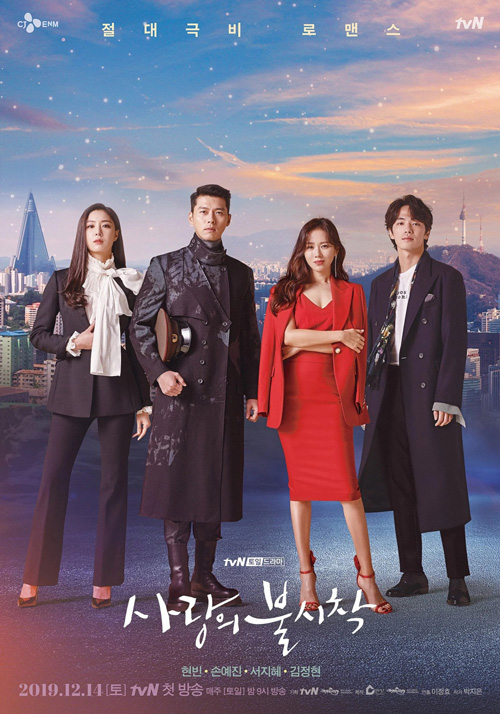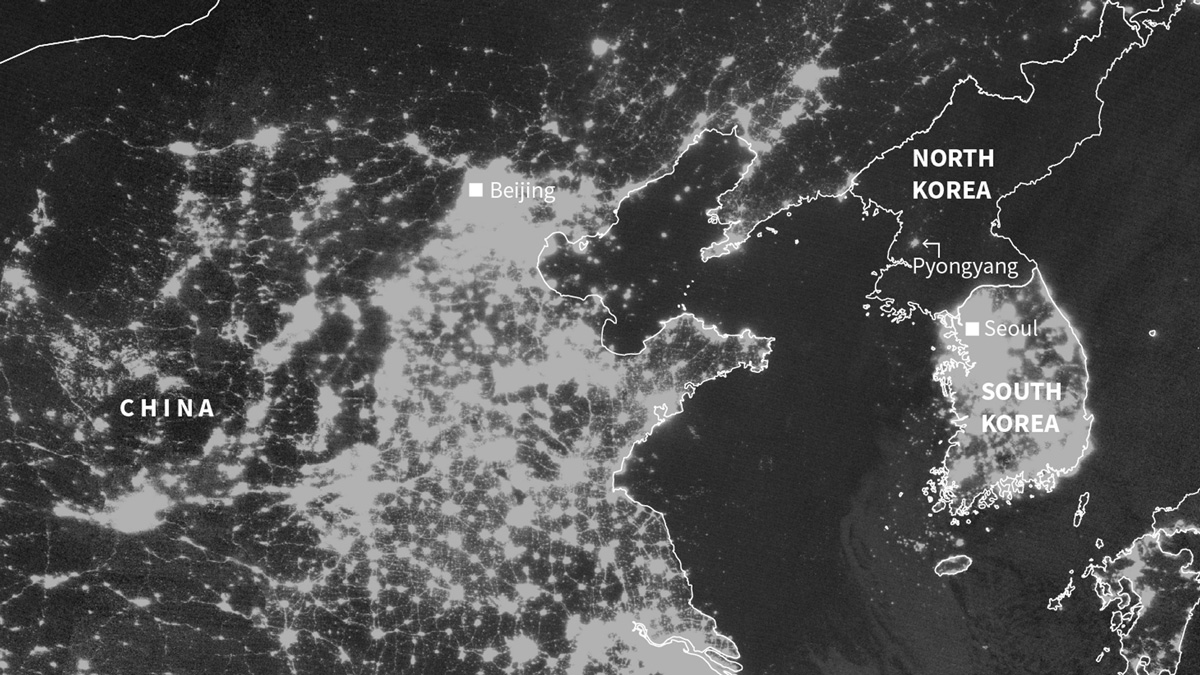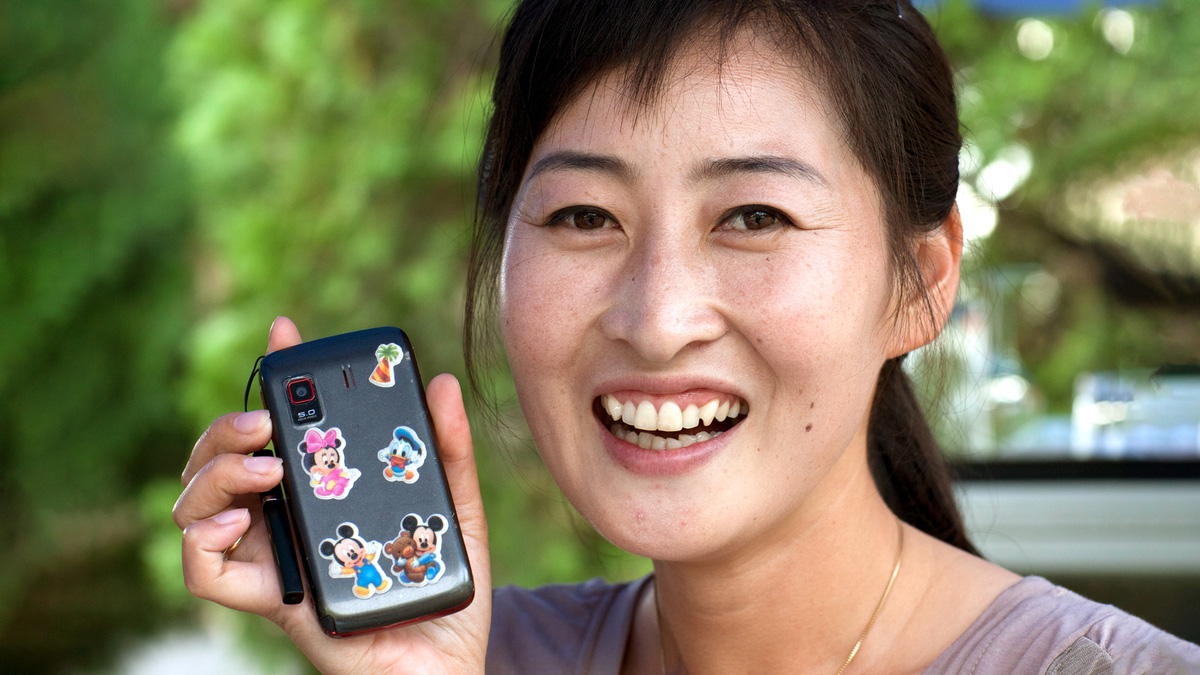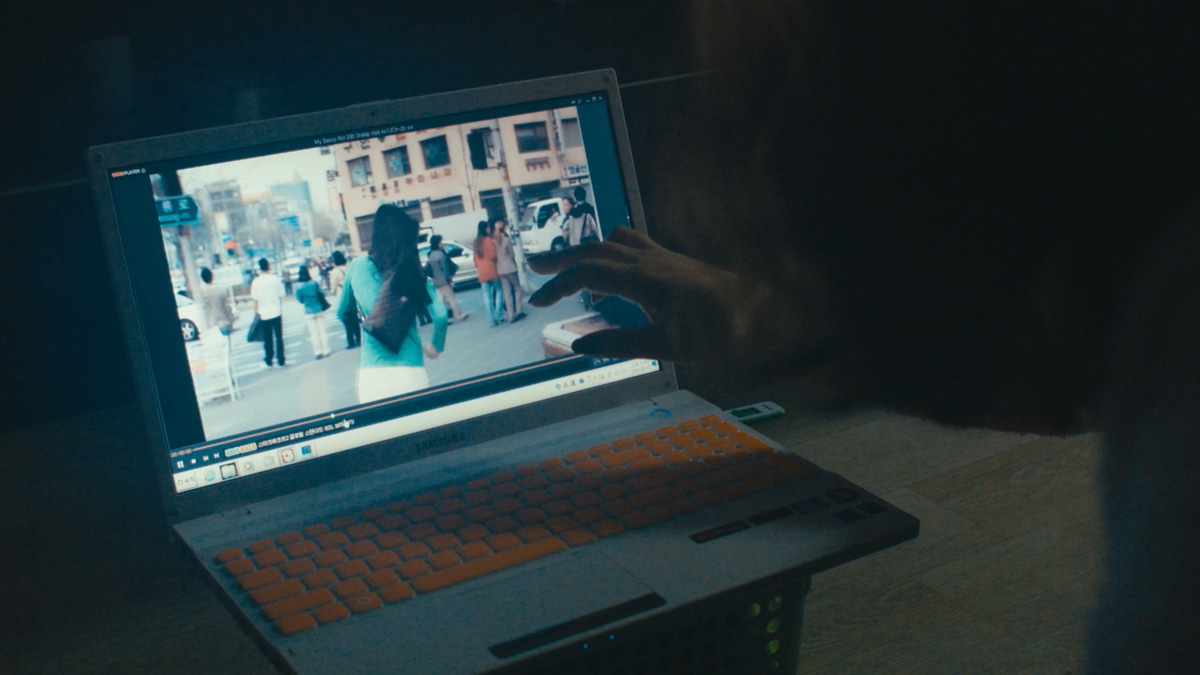Beyond Utopia: Documenting the Escape From North Korea
“...When life hands you an opportunity to watch footage like this, you don’t turn it down.” – IndieWire
Sharing visuals from the field has always been a dilemma for our organization. On one hand, the highly sensitive nature of the work makes protecting our routes and the identities of those involved the top priority. On the other, there is undeniable power and potential for impact in showing the reality of rescues—the high-stakes peril, raw emotion, and incredible moments of bravery from our North Korean friends. If only people could see what we did; it would become undeniably clear how important this issue is.
When Liberty in North Korea was first introduced to the Beyond Utopia team and their goal of documenting an actual rescue, we were incredibly hopeful, but with a healthy dose of skepticism. We knew all too well the countless risks, conflicting interests, and stakeholders involved in making such a project. Yet when we saw the footage, even in the most initial stages of editing, we knew this was something special.

Gripping, visceral, and urgent, Beyond Utopia embeds the viewer into the lives of several people as they navigate the path to freedom — a mother desperate to reunite with her son, a family of five as they attempt their perilous escape, and a South Korean pastor who’s devoted his life to helping North Korean refugees.
The film is both a simple record of events as they unfold and a suspenseful piece of cinema, weaved together with commentary from leading experts on the Korean Peninsula (including LiNK’s South Korea Country Director, Sokeel Park). It pulls back the curtain on the escape journey in a way that honors the truth and the film participants, while preserving the integrity of the work being documented. Although Beyond Utopia utilized Pastor Kim’s networks rather than our own, LiNK worked closely with the film’s team throughout post-production to review footage for security and accuracy.

The film made its debut in January 2023 at the Sundance Film Festival, long recognized as a hotspot for the upcoming year’s most impactful stories. To premiere at this influential celebration of cinema is a lifelong dream for many filmmakers, making Beyond Utopia’s inclusion alone a significant achievement.
LiNK’s CEO, Hannah Song, was able to attend Sundance alongside the crew and some of the film participants. She sat with the Roh family as they re-lived their escape on screen and saw how harrowing it truly was. For them to finally look back on their journey was a surreal and deeply emotional experience. Audience members were also tearing up and sniffling throughout the film and at the end, there was a long standing ovation — so deserved by these families for everything they have been through to reach freedom.

Sundance had one more surprise in store for us. A testament to the film’s heart, it won the coveted Audience Award for U.S. Documentary, selected by festival attendees themselves. The heartfelt recognition launched Beyond Utopia into another level of visibility, setting the tone for its success in the film festival circuit with some calling it an “Oscar hopeful.”

LiNK is proud to be an impact partner and fiscal sponsor for the film. As Beyond Utopia heads to theaters on October 23rd and 24th for an exclusive two-day event, LiNK will be joining the film on-screen to turn audience interest into tangible action. This documentary follows the lives of a handful of people, but the story is much larger than that. The goal was always to raise awareness and invite new audiences to learn more about all aspects of this issue, get involved as Allies, and help more North Korean refugees reach freedom.
As we’ve been able to slowly regain momentum with rescues since the pandemic, the level of visibility that Beyond Utopia offers is a timely opportunity. The journey has only become more challenging in recent years with border lockdowns, increased surveillance, and heightened restrictions. Costs have skyrocketed and become incredibly volatile, but our commitment to this work is stronger than ever.

Above all, Beyond Utopia is a story about the strength and resilience of ordinary North Koreans, despite the staggering circumstances stacked against them. Changing the narrative on North Korea to focus on the people, not a dictator or missiles, has long been a key pillar of our work. Beyond Utopia aligns with this perfectly, and we hope it brings greater urgency and support for this issue.
It cannot be overstated how rare this glimpse into this modern-day underground railroad is, and what a herculean feat it was for this film to be made.
Don’t miss the opportunity to see Beyond Utopia for yourself — now available on Hulu, Apple TV+, Amazon Prime video, and more.
Foreign Media in North Korea - How Kpop is Challenging the Regime
Movies, TV shows, and music hold power. They’re a way for us to connect through common experiences, reckon with different sides of humanity, and revel in the beauty of being here at all. They transport us to another time and place- perhaps one of our imaginations- and most importantly, allow us to dream and imagine a limitless future.

In recent years, South Korean media and entertainment has gained international recognition. People like Hyun Bin and Son Yejin, the stars of popular Korean drama Crash Landing on You, have become household names, while Parasite swept the 2020 Academy Awards and music from K-pop groups like BTS are charting globally.
Meanwhile, just across the border, North Korea remains one of the most closed societies in the world. Yet even in the “hermit kingdom,” foreign media is accelerating empowerment of the people and change within the country!
Forced Isolation and the Regime’s Information Monopoly
The North Korean government has maintained power for decades through a system of imposed isolation, relentless indoctrination, and brutal repression. A complete monopoly on information and ideas within the country has been key- outside media threatens to challenge the legitimacy of their propaganda, and by extension, their control.
The 2014 United Nations Commission of Inquiry on Human Rights in North Korea reported an almost complete denial of the right to freedom of thought, conscience, and religion as well as of the rights to freedom of speech, opinion, expression, and association.

The regime employs a range of strategies to enforce information control:
- Restricting movement across borders and within the country
- Random house searches
- Severe punishment, including public executions, to deter foreign media consumption and sharing
- Sophisticated digital surveillance
- Jamming phone signals and locating users through signal triangulation
- Mobile OS file signature system that only permits government-approved apps and files
The Spread of Foreign Media
Despite this isolation and unparalleled internal restrictions, the North Korean people have been quietly changing their country from within, including through foreign media access. Through market activity and the movement of people and goods across the Chinese border, they have forced the gradual opening up of their society. Movies and music are smuggled into the country on USBs, SD and MicroSD cards, and small portable media players, offering illicit access to information from the outside world.
With lights off and windows shuttered, North Koreans will watch foreign media despite the risks. If all else fails, bribes are a way for people to reduce punishment if caught. Most North Korean police and government officials rely on bribes to survive, and some defectors complain that they are actually the biggest consumers of foreign media because they confiscate so much.

Information Technology in North Korea
Within North Korea, a broad range of information technologies are available, although they should be registered with authorities. Laptops and computers officially run on a government operating system, Red Star OS, while the North Korean intranet, Kwangmyong, is air-gapped from the internet and heavily surveilled. However, in practice, many North Koreans have non-networked devices used for games, editing software, watching videos, and to copy, delete and transfer media on removable devices.
Mobile phones are also common with approximately 6 million on the North Korean network, meaning roughly 1 in 4 people have one. These North Korean phones generally cannot make international calls and the operating system limits users to approved state media (programs have been developed to bypass this security). On the other hand, smuggled Chinese phones can be used in border regions on the Chinese network. These have been crucial for staying in touch with relatives who have escaped or defected, who often send back money and information from the outside world.

Radios are the only channel of foreign media and news available real-time across the country. While they should officially be registered and fixed to North Korean stations, it is relatively easy to tamper with radio sets to pick up foreign broadcasts. In border regions, some TVs can also pick up live programming from South Korea and China. Traditionally, TVs were connected to DVD players, but newer LCD televisions also have direct USB input ports.
How Foreign Media Changes Perceptions
Among foreign media, entertainment from South Korea is particularly attractive, produced in the same base language by people with the same ancestry. They contain glimpses of rich and free realities just across the border. In comparison, domestic North Korean media seems old-fashioned and disingenuous, designed to reinforce the regime’s ideologies.
As North Koreans learn more about life, freedom and prosperity in the outside world, and their own relative poverty, the regime’s ideology and control are eroded.

“At first you see the cars, apartment buildings, and markets and you think it must be a movie set. But the more you watch, there’s no way it can be just a set. If you watch one or two [movies] it always raises these doubts, and if you keep watching you know for sure. You realize how well South Koreans and other foreigners live.”
– Danbi, escaped North Korea in 2011
Empowered by foreign media, North Koreans are exploring their creativity and potential through everyday acts of resistance- using South Korean slang, copying fashion styles, and sharing pop culture references. In this culture war, Kim Jong-un has called for crackdowns on "unsavory, individualistic, anti-socialist behavior" among young people to restrict freedom of expression.
Foreign media also facilitates shared acts of resistance. People will swap USB devices with trusted friends and neighbors, increasing confidence in one another through a symmetrical transaction. Some people may also watch and discuss movies and shows together, increasing the media’s subversive influence and creating social networks.
The Regime’s Response
During the pandemic, we’ve seen unprecedented levels of isolation and restrictions, closing off the country more than ever before. To buttress control, Kim Jong Un has simultaneously increased crackdowns and punishments on foreign media consumption. In December 2020, the “anti-reactionary thought law” made watching foreign media punishable by 15 years in a political prison camp.
While the situation is harrowing, the government’s extreme response underscores the power of foreign media. The regime recognizes that social changes driven by North Korean people are a threat to their authority and control in the long term.
Accelerating Foreign Media Access and Change
Moving forward, increasing access to outside information is one of the most effective ways to help the North Korean people and bring forward change.
Information and technology support for North Korean people has historically been an under-utilized and under-invested strategy. LiNK Labs is our area of work focused on this opportunity- we’re developing technologies, networks, and content to empower North Korean people with access to information and ideas from the outside world.




